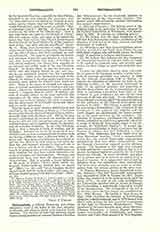

Universalists, a Liberal Protestant sect whose distinctive tenet is the belief in the final salvation of all souls, and which is chiefly to be found in North America. The doctrine of universal salvation found favor among members of various Christian Churches (see Apocatastasis for its treatment anterior to the foundation of the Universalist Church). The present article will exclusively consider Universalism as a separate denomination.
I. Doctrinal Principles.—The historic creed of this religious body is the profession of belief adopted by the General Convention at Winchester, New Hampshire, in 1803. It contains the following articles:
(I). We believe that the Holy Scriptures of the Old and New Testaments contain a revelation of the character of God and of the duty, interest, and final destination of mankind.
(2). We believe that there is one God whose nature is Love, revealed in one Lord. Jesus Christ, by one Holy Spirit of grace, who will finally restore the whole family of mankind to holiness and happiness.
(3). We believe that holiness and true happiness are inseparably connected, and that believers ought to be careful to maintain order and practice good works; for these things are good and profitable unto men.
To meet the objections raised by some Universalists to parts of the foregoing articles, a briefer statement of essential principles was adopted in 1899 by the General Convention held at Boston. It requires for admission to fellowship the belief in the following articles: (I) the universal fatherhood of God; (2) the spiritual authority and leadership of His Son Jesus Christ; (3) the trustworthiness of the Bible as containing a revelation from God; (4) the certainty of just retribution for sin; (5) the final harmony of all souls with God. To the admission of these principles must be added “the acknowledgment of the authority of the General Convention and assent to its laws”. The Trinity is usually rejected by present-day Universalists. The reception of the sacraments is not enjoined; but baptism and the Lord’s Supper are administered; the former according to the mode preferred by the candidate. The infliction of temporary punishment for sin insufficiently atoned for on earth is now generally admitted. A usage of distinctly Universalist origin is the observance of “Children’s Sunday“. A special day (now the second Sunday in June) is set apart for the baptism of children and their dedication to God‘s service. This observance has been taken over by other Protestant churches. Until a comparatively recent date the several Universalist congregations administered their own affairs independently, and the General Convention enjoyed merely advisory powers. The functions of this body were enlarged in 1866 and further extended in 1870, so that it is at present the highest legislative authority for the United States and Canada. It meets biennially, and when not in session most of its powers are exercised by a board of trustees. It is composed of clerical and lay delegates from the subordinate state conventions. The latter meet annually, and are made up of delegations from the various parishes of the same state.
II. History; Missionary, Social, Educational Activities; Statistics.—The first Universalist congregation was organized in 1750 in London by Rev. James Relly, who ministered to its spiritual needs until his death (1778). In spite of this early establishment few Universalist churches exist at present in Europe; but Universalism is undoubtedly believed in outside of the denomination. The stronghold of the sect is in America, where the first church was established by Rev. John Murray. He landed in New Jersey in September, 1770, preached the doctrine of Universalism along the Atlantic seaboard, and in 1779 formed with fifteen other persons the first American congregation of that faith at Gloucester, Massachusetts. Other preachers of the same doctrine arose about this time: Elhanan Winchester, a former Baptist minister, taught Universalism at Philadelphia, and Adams Streeter and Caleb Rich spread it in New England. More marked in its success and wider in the range of its influence was the propaganda of the Rev. Hosea Ballou (1771-1852), whose Unitarian views triumphed in the denomination over the Sabellian conception of the Trinity taught by Murray. His teaching of universal salvation immediately after death, however, did not meet with unanimous approval, and caused the secession of eight ministers and some members who, under the name of Restorationists, founded a separate sect. But the existence of this new creation was short-lived (1831-41), while the parent body spread during Ballou’s lifetime not only in the United States but also to Canada. Its progress was retarded by the Civil War, but the propaganda subsequently carried on, chiefly under the direction of the board of trustees and the state conventions, was crowned with some success, and the denomination is now represented in almost every state of the Union. The statistics for 1910, however, indicate a decrease of 9 churches and 2686 communicants. Foreign missionary work has recently been inaugurated, and is carried on mainly in Japan, where the first station was founded in 1890. The church maintains charitable institutions in New York, Philadelphia, Minneapolis, and Boston. It supports a publishing house in the latter city, with a branch in Chicago. It controls the following educational institutions: Tufts College (founded in 1852) Medford, Mass.; Lombard College (1852), Galesburg, Illinois; St. Lawrence University (1856), Canton, New York; Buchtel College (1872), Akron, Ohio. A school of divinity is connected with the first three institutions named. Academies are maintained at Franklin, Massachusetts (Dean Academy); Barre, Vermont (Goddard Seminary); and Portland, Maine (West-brook Seminary). Statistics for the United States in 1911, according to Dr. H. K. Carroll in the “Christian Advocate”, New York, January 25, 1912: 709 ministers, 886 churches; 52,150 communicants.
N. A. WEBER

